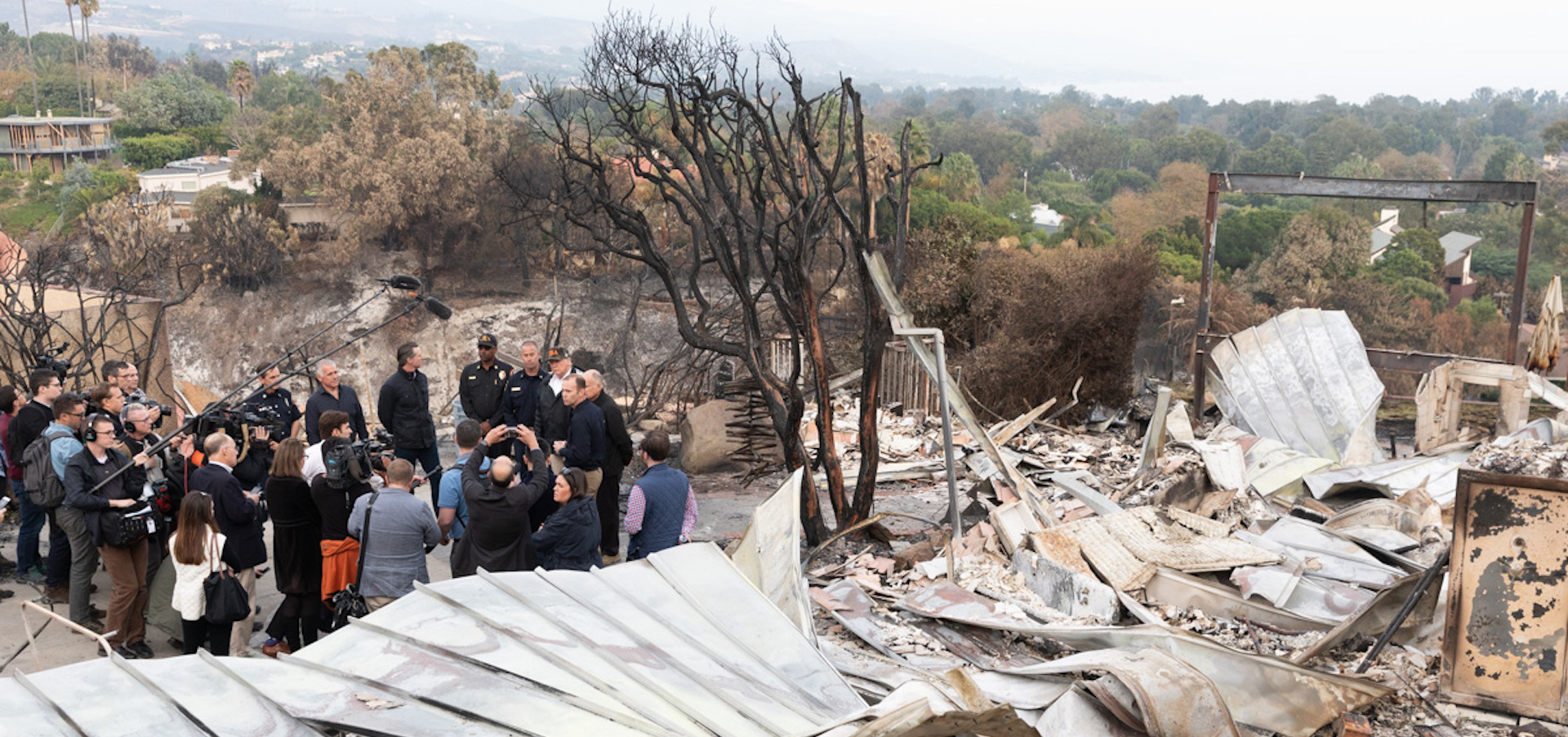2018 saw temperatures, natural disasters and CO2 emissions hit record highs. Meanwhile, our world leaders are procrastinating, says Michał Olszewski.

Natural disasters – like this year’s California wildfires – will only get worse in 2019 (Public Domain)
Each new climate summit is sadder than the last.
The clock is ticking. We are already well aware of what needs to be done to stop climate change. Each passing year brings a mass of evidence of how devastating the effects of global warming will be … sorry, are. This year’s delegates should have observed a minute’s silence for the victims of the fires that devastated California. The state’s years of drought, high temperatures and constantly falling water table led to one of the largest post-war ecological disasters in the United States.
There is a paradox that politicians meeting at successive climate summits are extremely reluctant to mention. On the one hand, our knowledge of climate mechanisms is growing exponentially, and successive IPCC reports clearly show the direction in which we should be heading. On the other hand, global CO2 emissions are growing every year.
The detailed “Global Carbon Project” report leaves not even the slightest illusions on the subject. Since the beginning of the 21st century, emissions have been growing continuously (though at different rates), with a temporary leveling off in 2014–2016. This year and last saw rising emissions again. At the same time, the average temperature is increasing year on year. Warm … getting warmer … hot!
This glaring contradiction is (at least officially) spoken about with extremely reluctance. The reason is simple: politicians and negotiators would then have to admit that these series of meetings are primarily an act of diplomatic procrastination, a delaying tactic. The fear of the economic consequences of firm decisions is greater than the fear of the consequences of global warming. But nobody will just come out and say it. This is why the Chinese – masters of diplomacy – have for years taken all the top prizes in emitting CO2 while at the same time admitting that a global reduction in emissions is needed.
So what is the way out? For as long as I can remember, climate summits end up announcing … the next climate summit, where binding decisions will definitely be made.
This time is no different, with one exception. I am thinking of the speeches by leading Polish politicians who, by all indications, have chosen to abandon the rules of diplomatic games and squarely voiced their frank opinions on the fight against global warming. In his speech, President Andrzej Duda repeatedly avoided the truth, saying, among other things, that there are enough coal resources for Poland for 200 years, that we are an energy-sovereign country, that greenhouse gas emissions in Poland are falling, that burning coal does not stand in opposition to reducing emissions.
I am not going to mention each of these misunderstandings, mistakes and outright untruths. It is clear, however, where they come from. Poland’s position is as follows: we will continue to base our economy on coal and it’s nothing to do with you. Let others take care of climate protection; in Poland, our business is our own. If I were a representative of the drowning state of Kiribati, I would have taken the host’s position as a slap in the face. Probably the only one to go further in denying reality was Trump, who advised the residents of fire-ravaged California to … rake leaves.
I can’t exclude the possibility that Andrzej Duda was saying out loud what many national leaders will only say in the privacy of their offices. For climate negotiations, however, such formulations are devastating, as they show that there are countries that only want to play a blocking role in the negotiations. And what’s more, they are very happy in that role.
So, see you at the next climate summit. The next one is apparently going to be really decisive.